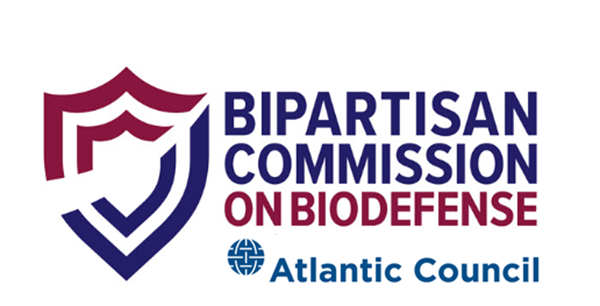New Report From Blue Ribbon Study Panel on Biodefense Finds Animal Agriculture Increasingly Threatened – Calls For Immediate Action

FOR IMMEDIATE RELEASE
Contact: Steve Aaron, SRA Communications, (717) 554-8614, steve@SRACommunications.com
NEW REPORT FROM BLUE RIBBON STUDY PANEL ON BIODEFENSE FINDS ANIMAL AGRICULTURE INCREASINGLY THREATENED – CALLS FOR IMMEDIATE ACTION
‘Defense of Animal Agriculture’ Provides Specific Recommendations for
Protecting One of the Largest Sectors of U.S. Economy
WASHINGTON, D.C. (Oct. 18, 2017) – The increasing rate of emerging and reemerging animal diseases, along with threats and attempts by those with nefarious intent to attack food and agriculture, point to the need to reduce the biological risk to America’s food and agricultural sector. That is the finding of a new report out today from the Blue Ribbon Study Panel on Biodefense: Defense of Animal Agriculture. This is the first in a series of special focus reports. It includes the Panel’s evaluation of threats to animal agriculture, central to the health and well-being of the population and the security of one of the largest sectors of the U.S. economy.
“Every year, we discover new threats to the Nation that could severely impact our animal agriculture,” said Tom Daschle, former Senate Majority Leader and Blue Ribbon Study Panel on Biodefense Panel Member. “Whether these threats arise here at home or abroad, we need to ensure that both domestic and international agrodefense efforts occur in concert. Governmental and non-governmental stakeholders also need to work together to eliminate vulnerabilities and reduce potential consequences that would affect our animals, lives, and economy. Implementing the proposals contained in this new report will prevent illness, death, and economic disaster.”
Sen. Daschle pointed to a recent outbreak of avian influenza as an example of the devastating economic impact of zoonotic disease. In December 2014, a highly pathogenic strain of avian influenza entered the United States via migrating wild birds. The ensuing outbreak resulted in the largest animal health disaster ever experienced by the United States. Federal and state governments spent $879 million on outbreak response. The outbreak impacted 21 states, lasted until the middle of 2015, and led to the depopulation of more than 50 million birds on 232 farms. Subsequent trade bans impacted as many as 233,770 farms. The total cost to the U.S. economy was estimated at $3.3 billion.
The Panel views protection of agriculture – the cultivation and breeding of animals and plants for food, fiber and other products used to sustain human life – as a critical element of national biodefense. While nearly all of the Panel’s 2015 Blueprint for Biodefense recommendations apply, some are especially important for agrodefense and deserve particularattention in this context.
“The goal of this report is to elucidate some key, persistent challenges and to propose feasible solutions,” said Sen. Daschle. “We think that our Defense of Animal Agriculture report will stimulate further conversation and most importantly, action, by both the public and private sectors.”
To read the full report, click here.
About the Blue Ribbon Study Panel onBiodefense
The Blue Ribbon Study Panel on Biodefense was established in 2014 to conduct a comprehensive assessment of the state of U.S. biodefense efforts, and to issue recommendations to foster change. The Panel’s 2015 report, A National Blueprint for Biodefense: Leadership and Major Reform Needed to Optimize Efforts, identified capability gaps and recommended changes to U.S. policy and law to strengthen national biodefense while optimizing resource investments. The Panel continues to assess biodefense challenges and to urge reform. Former Senator Joe Lieberman and former Governor Tom Ridge co-chair the Panel, and are joined by former Secretary of Health and Human Services Donna Shalala, former Senate Majority Leader Tom Daschle, former Representative Jim Greenwood, and the Honorable Ken Wainstein. Hudson Institute<> is the Panel’s fiscal sponsor.
